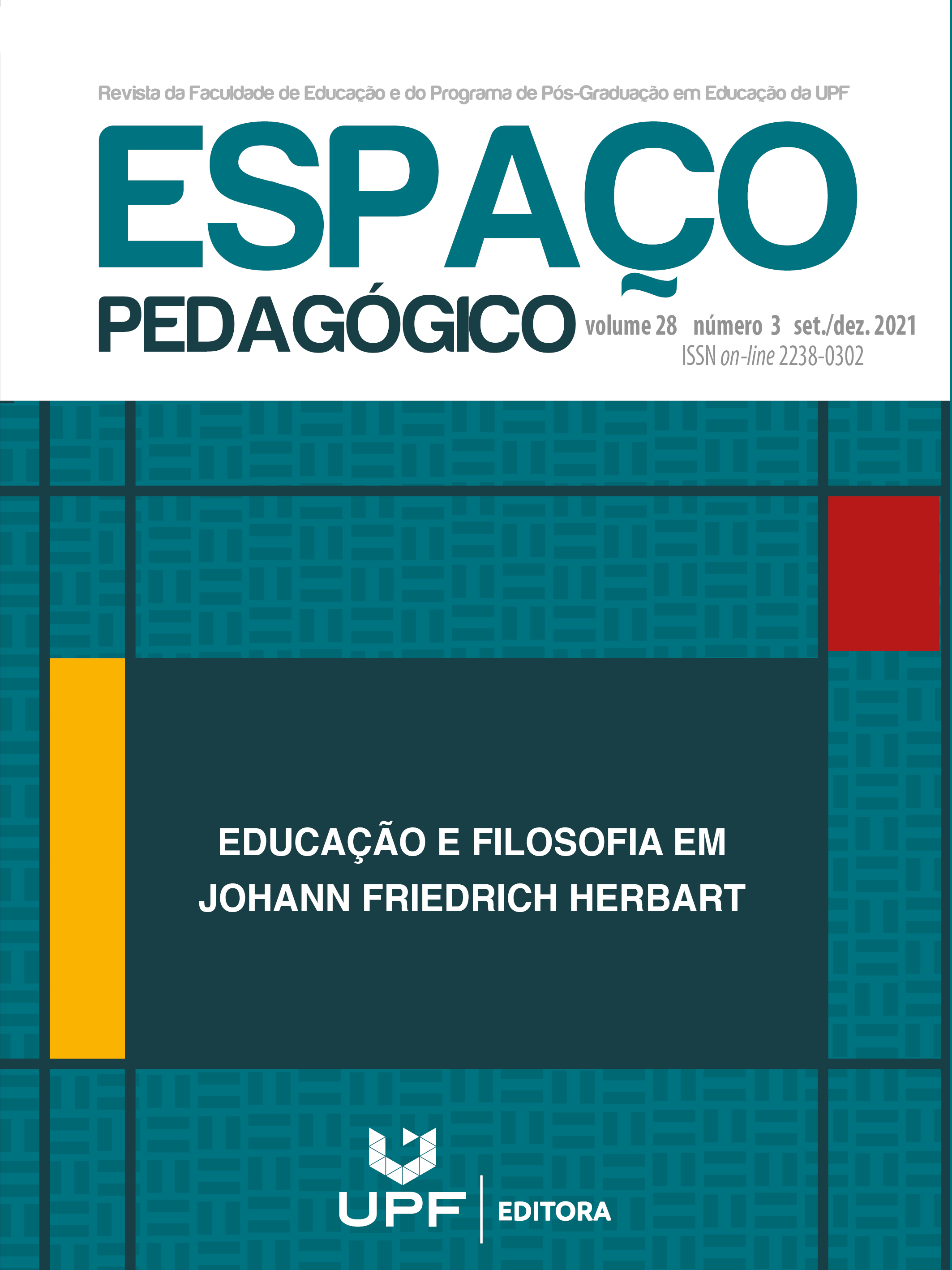Complexity, educational instruction and political formation
DOI:
https://doi.org/10.5335/rep.v28i3.12236Keywords:
Herbart; Interesse múltiplo; democracia; autogoverno.Abstract
The persistent article is the result of bibliographical review research, from an analytical and hermeneutic perspective. It is concerned with reconstructing fundamental concepts of Herbart's pedagogical theory in an attempt to signal his contributions to the reflection on the political formation of young people to live together, exist and participate in modern complex and democratic societies. Complex societies are made up of subjects guided by a plurality of perspectives and thought formation, in a constant process of confrontation and deliberation. Political formation is not to impose perspectives on young people, but to develop an open, multidirectional outlook and to guarantee and mobilize those educated who build their own perspectives. It is a question of thinking about formation through educational instruction, especially formation in multiple interests, as a means of political formation for young people to live with the diversity of perspectives without being subjugated or restricted in their freedom to assume diverse positions. The self-concludes that, although Herbart did not deal systematically with the theme of political formation, the theme of politics permeates his theory, and can be traced in various passages and moments of his theory or work



